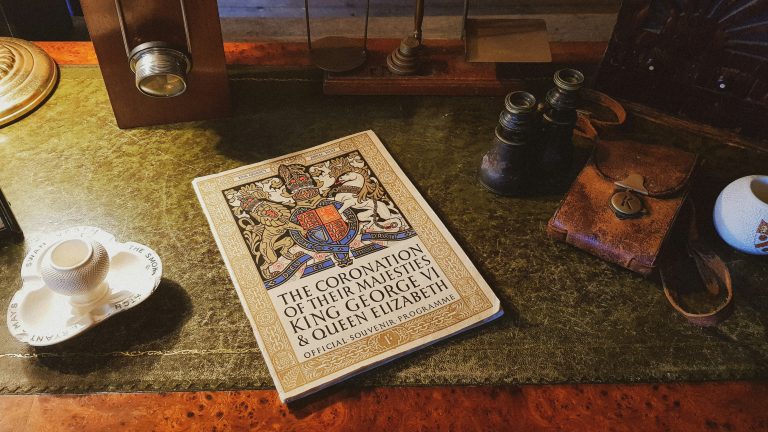The Revival of Sonnets in Modern Portuguese Poetry
Introduction
The sonnet, a poetic form of 14 lines marked by strict rhyme schemes and thematic structure, has long held a central place in Portuguese literature. From the masterpieces of Luís de Camões to the lyrical intensity of Bocage, the sonnet was once the preferred vessel for exploring themes of love, nature, and philosophy. However, as modernist movements in the 20th century turned toward free verse and experimental styles, the sonnet gradually lost its prominence. In recent years, though, this classical form has been making a surprising return. This article explores the contemporary revival of the sonnet in Portuguese poetry, examining how poets are reshaping its structure, expanding its themes, and finding new relevance in today’s literary landscape.
Historical Context: The Sonnet in Portuguese Tradition
During the Golden Age of Portuguese poetry, the sonnet reigned as a dominant form, particularly between the 16th and 19th centuries. Writers used it to craft intricate expressions of love, reflections on human mortality, and celebrations of the natural world. The cultural weight of the sonnet was immense, symbolizing refinement and mastery of language. Yet by the 20th century, the literary scene shifted dramatically. Free verse and avant-garde experimentation pushed structured poetry to the margins, as poets embraced forms that rejected tradition in favor of innovation. Even so, the seeds of revival were already being planted in late 20th-century literary circles, where some writers began reconsidering classical forms as valuable vehicles for modern expression.
Drivers of the Contemporary Revival
Several forces are fueling the sonnet’s resurgence in Portugal. One of the most significant is cultural nostalgia and the desire to reaffirm national identity in the face of globalization. By revisiting a form deeply embedded in Portuguese heritage, poets reinforce a connection to their literary roots. At the same time, younger generations have found in the sonnet a form of rebellion: embracing structure as a deliberate counterpoint to the fragmented, fast-paced language of the digital age. Universities and literary institutions have also played a role by promoting workshops and publishing projects that spotlight formal poetry. Additionally, global literary movements, such as the New Formalism trend in the Anglophone world, have inspired Portuguese poets to explore structured verse with fresh perspectives, demonstrating that tradition and innovation need not be at odds.
Characteristics of Modern Portuguese Sonnets
Modern Portuguese sonnets balance reverence for tradition with bold experimentation. Structurally, many poets play with hybrid forms, blending Petrarchan and Shakespearean rhyme schemes or adapting the meter to better suit contemporary speech. Slant rhymes and flexible rhythms are common, allowing the sonnet to resonate with modern readers. Thematically, the evolution is striking: while classical sonnets often revolved around love and nature, today’s poets turn their gaze toward urban alienation, cultural transformation, and the existential challenges of living in the digital age. Issues of Portuguese identity, particularly in the context of European cultural integration, also find expression in this compact form. Linguistically, sonneteers weave colloquial expressions and newly coined words into their verses, proving that even within traditional constraints, language can remain dynamic and alive.
Contemporary Examples
Contemporary sonnets in Portugal reveal an impressive range of diversity. Some poets use the form to address pressing global issues such as social inequality, climate change, and environmental decline, framing them with lyrical precision. Others write highly personal sonnets that explore the psychological impact of technology, mental health struggles, or the alienation of modern urban life. Formal experimentation is equally evident, with prose-sonnets that blur the line between narrative and poetry, and visual sonnets where typography and spatial arrangement play as important a role as words. Cultural specificity also remains a hallmark of Portuguese sonnets, as many poets incorporate elements of folklore, the melancholic spirit of fado music, and vivid depictions of regional landscapes into their tightly structured verses.
Poet Insights: Collective Perspectives
Contemporary poets often describe the sonnet’s constraints not as limitations but as catalysts for creativity. The strict form challenges them to distill emotions and ideas with greater precision, resulting in poems that carry both intensity and clarity. Many also emphasize a strong desire to connect with Portugal’s literary heritage, viewing the sonnet as a bridge between past and present. At the same time, they acknowledge the challenges of maintaining the form’s relevance in a rapidly changing world. Balancing tradition with modern concerns requires a careful approach, but the rewards are significant, as the sonnet allows for a unique kind of emotional resonance. Looking ahead, poets express optimism about the sonnet’s adaptability, predicting that it will continue to evolve alongside contemporary themes and gain broader recognition within mainstream literary culture.
Conclusion
The revival of the sonnet in Portuguese poetry reflects more than a return to tradition—it represents an ongoing dialogue between past and present. Once overshadowed by free verse, the sonnet has reemerged as a dynamic form that speaks powerfully to modern concerns while retaining its classical elegance. Its enduring appeal lies in its dual nature: disciplined structure paired with expressive freedom. This renaissance not only underscores the resilience of Portugal’s literary tradition but also affirms the universal relevance of the sonnet. As contemporary poets continue to innovate, the sonnet remains a living testament to the power of language, capable of capturing both timeless truths and the urgent voices of today.
Key Takeaways
- The sonnet, once central to Portuguese poetry, is experiencing a revival after losing prominence during the rise of free verse in the 20th century.
- Cultural nostalgia, national identity, academic promotion, and global literary movements like New Formalism are driving this resurgence.
- Modern Portuguese sonnets often blend traditional forms with experimental techniques, using slant rhymes, hybrid structures, and contemporary language.
- Themes have shifted from classical love and nature to modern issues such as urban life, technology, identity, and global challenges.
- Contemporary poets see the sonnet’s structure as a creative catalyst, allowing for clarity, intensity, and a strong connection to literary heritage.
- This revival shows how tradition and innovation can coexist, ensuring the sonnet remains relevant in today’s literary and cultural landscape.
FAQs
Why are sonnets experiencing a revival in modern Portuguese poetry?
The revival of sonnets in modern Portuguese poetry stems from cultural nostalgia, a desire to reaffirm national identity, and growing interest among younger poets. Many see structured forms like the sonnet as a creative counterbalance to digital fragmentation, blending tradition with contemporary themes for renewed relevance.
How do modern Portuguese sonnets differ from classical ones?
Unlike classical sonnets that focused primarily on love, nature, and philosophy, modern Portuguese sonnets explore urban life, digital-age challenges, and issues of cultural identity. They often incorporate flexible rhyme schemes, colloquial language, and experimental formats, making the traditional form accessible and relatable to contemporary audiences.
What themes do contemporary Portuguese poets address through sonnets?
Today’s Portuguese poets use sonnets to reflect on diverse issues, including social inequality, mental health, climate change, and cultural transformation. Many also weave folklore, regional landscapes, and the melancholy of fado music into their work, showing how the sonnet can powerfully capture modern human experiences.
Digital publishing has transformed how Portuguese authors reach readers worldwide. This article explores the most effective platforms available today, helping writers publish, promote, and connect with a global audience while building visibility in an increasingly competitive literary market.










